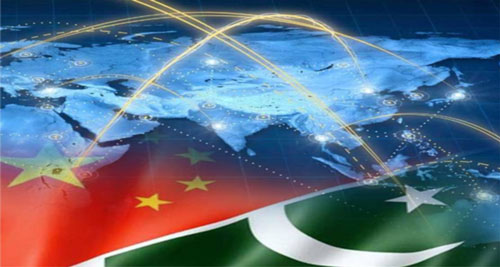CPEC: Changing Security Equation & Interconnectivity Strategies
China-Pakistan Economic Corridor (CPEC) stands for socio-economic prosperity and massive industrialization of Pakistan.
It also instruments for greater regional integration and regional connectivity.
Actually, it changes the basic concept of national security which is a good omen for achieving regional peace, stability and harmony.
Pakistan and Uzbekistan have been jointly working to achieve sustainable regional connectivity by avoiding spillover repercussions of endgame in Afghanistan.
Both countries have been pursuing an Afghan-owned & Afghan-led solution for the future of Afghanistan especially after the US withdrawal.
Most recently, the COAS General Qamar Bajwa while delivering a keynote speech in Islamabad Security Dialogue showcased the strategic importance of the CPEC for greater regional connectivity.
He also outlined salient features of Pakistan’s geo-economy based on inter-regional connectivity via CPEC and strategic location of the country too.
Various spells of high official meaningful meetings have been in process in the capitals of Islamabad, Tashkent and Kabul to streamline the process of Afghan internal grand dialogue to reach a consensus for its national wide stability, peace and harmony.
Moreover, the upcoming international conference in the month of July 2021 titled “Central Asia and South Asia: Regional Interconnectedness: Challenges and Opportunities would provide more valuable practical solutions for greater regional connectivity in the future.
Most recently, the Deputy Chairman of Uzbekistan Railways, Akmal Kamalov visited Karachi Port Trust (KPT) and desired to utilize it for a significant volume of Uzbekistan’s cargo and containers.
The Uzbek Minister said the maritime initiative between Pakistan and Uzbekistan would be fast-tracked and facilitated.
The KPT has also assured the Uzbek side that the port had sufficient capacity to handle their trade
In the near past, Uzbekistan presented the concept of greater regional connectivity through the construction of the Mazar-i-Sharif-Kabul-Peshawar railway.
The Uzbek Chairperson of the Senate, Tanzil Narbaeva termed it as the “event of the century”.
Prime Minister Imran Khan described the project as the important connectivity project and endorsed Pakistan’s efforts for the early implementation of the railway line.
Once this entire project is operationalized, there is an estimate that the trade between Pakistan and Uzbekistan may reach up to 90 billion USD.
In this regard, a roadmap was signed by all the participating countries in Tashkent. It is indeed a giant step towards regional integration of the CIS and South Asia Region which has combined population of 1.9 billion people 25 percent the world and a GDP of 3.5 trillion dollars.
South Asia is the fastest growing region in the world up 7.5 percent per year leading by China.
Moreover, South Asia’s contribution to global growth is 15 percent and by 2040 it may increase to over 30 percent.
So this is Asian Century in which Chinese One Belt & One Road Initiative (BRI) and its flagship mega project CPEC will play a positive and productive role.
For further regional connectivity, in the near past, Uzbekistan’s Deputy Prime Minister for Investment and Foreign Trade, Sardor Umurzakov visited Pakistan and met high dignitaries including Prime Minister Imran Khan, COAS General Bajwa and various Ministers.
During his stay in Pakistan, Sardor Umurzakov showed his government’s willingness to become the Quadrilateral Traffic in Transit Agreement (QTTA) which has already been signed by Pakistan, China, Kyrgyzstan and Kazakhstan.
The Government of Pakistan has now decided to have access to the market of Central Asian Republics (CARs) through China. It offers an alternative means to CARs by completely circling Afghanistan.
Pakistan would use the Karakorum Highway which connects Gilgit-Baltistan and China’s Xinjiang region with the CARs. Pakistan would support Uzbekistan to become part of the QTTA.
Uzbekistan has since long been expressing seriousness to join the QTTA which will enable Pakistan to export its products under QTTA to Central Asia.
Uzbek Deputy Premier Sardor Umurzakov also met with Adviser to the PM on Commerce, Textile and Investment, Abdul Razak Dawood and explored more avenues for increasing the bilateral trade between the two countries.
Afghanistan has been a stumbling factor for greater regional connectivity which must be now resolved for greater regional integration, prosperity and poverty eradication for which Pakistan and Uzbekistan have been jointly playing important roles.










